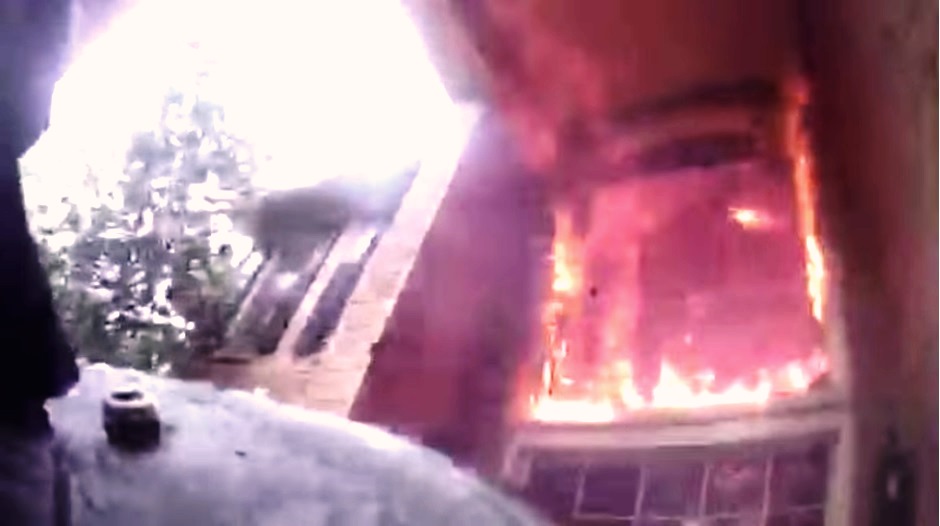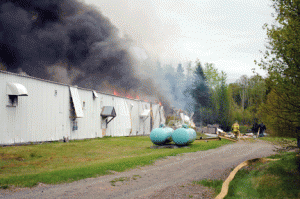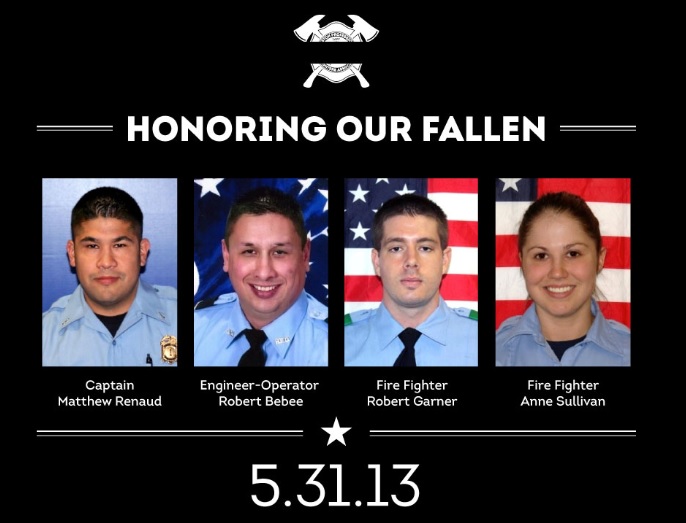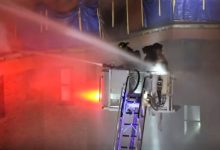Must see video: Police officer beats & arrests man who won't turn off his camera. An important lesson.
There has been an ongoing discussion in our comments section about my recent postings on the issue of cameras being used by the press and citizens at scenes where there is police, fire or EMS activity. Coincidentally, on Friday, this video surfaced, with the help of the Las Vegas Review-Journal's Mike Blasky. It seems to illustrate many of the points I have been trying to make.
Reading the comments on Law Officer's Facebook page over a similar, but less violent confrontation in Florida and the comments on this site, it is clear there are many first responders who aren't really clear about the freedoms provided by the First Amendment. They believe it is perfectly okay for a police officer, firefighter, EMT or paramedic to order someone to shut down a camera when that citizen or member of the press is standing in a public place and shooting something that is in public view. Some believe it is okay for a first responder to make up laws that don't exist and threaten a photographer with arrest or seizure of their camera equipment. All sorts of reasons are used that aren't backed up by any legal authority. They include victims' rights, right to privacy, and claims that shooting a building threatens security. Sometimes it's simply the belief that a camera shooting a first responder doing their jobs interferes with an investigation or operation.
The case of Mitchell Crooks and Las Vegas Metropolitan Police Department Officer Derek Colling should give pause to those who believe any of those are legitimate reasons to interfere with picture taking when the person has not infiltrated a secure area.
In the raw video (above) from March 20, Officer Colling approached Crooks, who had spent the previous hour shooting video of the arrest of burglary suspects across the street from Crooks' home. Crooks was standing on his own property at the time, even though he initially denied it was his home. Ordered to shut down his camera, Crooks refused. The camera toting citizen was wrestled to the ground, battered and handcuffed by the officer.
As Mike Blasky writes, Crooks initially faced charges of battery on a police officer, had his expensive camera seized and suffered a broken nose and possible broken ribs. But things are now looking very different, thanks to Crooks not shutting off his camera and the right people seeing his video. The charges have been dropped by the Clark County District Attorney, an internal investigation of Officer Colling is underway, Officer Colling has been suspended and Crooks got his camera and video back.
Besides Crooks' claim, at first, that he didn't live where the video was shot, there are a few other side issues in Blasky's article that sure are interesting but in the end may not really be the deciding factor in whether Crooks has the right to use his camera in a public place, unmolested by law enforcement. These include a 2002 video of police that Mitchell Crooks shot that made news in California. In that case the video showed two Inglewood officers beating a 16-year-old boy. Blasky also brings up that Officer Colling has been involved in two fatal shootings that were later ruled justified.
If you really think that you, as a first responder, have the legal right to interfere with such picture taking by the press or the public I urge you to read Blasky's entire article and follow this case closely. My view is that Officer Colling has made his department and police officers in general look pretty bad because of such thinking.
This is why I strongly suggest police, fire and EMS departments teach their people what limited legal authority they have when it comes to cameras in public places and to really understand the rights of the people holding those cameras.
I know the actions of Derek Colling don't represent law enforcement in general. I don't want anyone to get the impression that this site's purpose is now for cop bashing or that I'm anti-police. What I am is pro-First Amendment.
There is a real fear/hatred of the press and cameras in general by some who serve the public. That's their right to feel that way. But this video appears to show when that turns into public officials infringing on the basic rights of others it can quickly get really ugly.
March 26 Las Vegas Review-Journal article
April 22 Las Vegas Review-Journal article
April 23 Las Vegas Review-Journal article update confirming officer's suspension
Article on 2002 video taping of a police incident by Mitchell Crooks
Previous coverage & discussion of cameras at incident scenes can be found here, here, here, here, here, here, here, here, here & here






